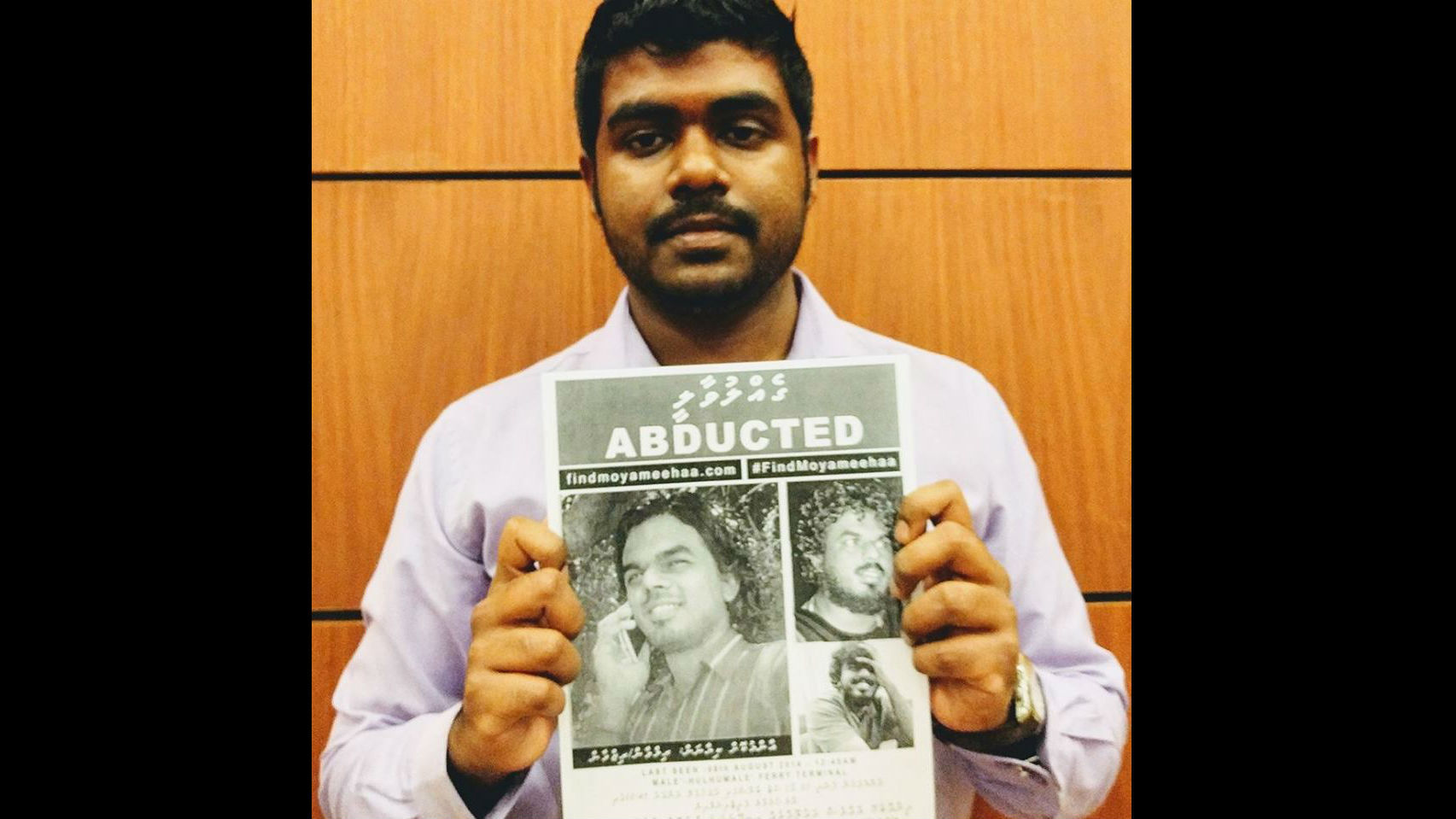Ahmed Rilwan, four years on
The police and Prosecutor General’s Office have said nothing about the trial verdict.

08 Aug 2018, 09:00
Maldives Independent journalist Ahmed Rilwan went missing on August 8 2014.
Two men were found not guilty over his abduction earlier this month, with Judge Adam Arif blaming authorities for failures in the investigation and prosecution. He described the crime as a “dangerous atrocity that seemed to have been conducted by a network of several people.”
Prosecutor General Aishath Bisham was asked – before the verdict – what the challenges had been in the case.
“Right now, I don’t want to make any comment because the case is ongoing in court,” she said. “Yes, there were many difficulties. We faced so many obstacles and I really want to make a comment on this but I can’t because it’s still ongoing in court. I’m ready to comment when the case concludes in court.”
Become a member
Get full access to our archive and personalise your experience.
Already a member?
Discussion
No comments yet. Be the first to share your thoughts!
No comments yet. Be the first to join the conversation!
Join the Conversation
Sign in to share your thoughts under an alias and take part in the discussion. Independent journalism thrives on open, respectful debate — your voice matters.




